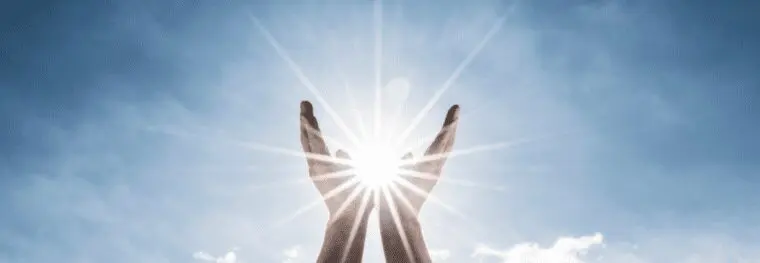Why We Give
Why I Give… Ann Margaret Mayer, Ed.M., M.L.S.
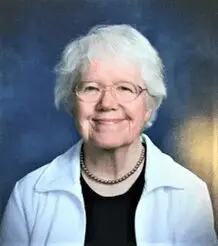
Ann Margaret Mayer was a curious and creative lifelong learner who loved science and history—as well as world travel, gardening, knitting, and making collages.
Educated at Mount Holyoke, Ann Margaret began her career as a technical writer, earned her Ed.M. from Harvard, and worked as a primary school teacher—first in Massachusetts and eventually back in her home state of New York. Later in her career, she received her M.L.S. degree from SUNY Geneseo and became a librarian.
She wrote several children’s books reflecting her wide-ranging interests, including ones focused on Beatrix Potter, Sir Frederick Banting, and Dag Hammarskjold…and another on UFOs!
While living with Parkinson’s disease in a retirement community, she helped care for finches in the aviaries and was never without a cat. Late in life while in assisted living, she created books of poems on the animals of Nepal, which included illustrations by Nepalese and British school children.
We cannot say for certain if her interest in our mission stemmed from a shared concern for humans and nature, healthy aging, the belief that people flourish in all types of bodies, or other topics that she encountered in her teaching, reading, or travel, but the fact that she made such a substantial gift to The Hastings Center for Bioethics from her estate speaks volumes.
Although we would love to have known and thanked Ann personally for her decision to include Hastings in her estate, we are grateful to have learned more from her loving family about Ann’s vibrant approach to life.
The Hastings Center for Bioethics wishes to honor and memorialize all those who support our mission by means of a bequest or any other gift planning arrangement.
We give thanks to Ann for her thoughtfulness and generosity.
Why I Give . . . Timothy Morris, Ph.D., Professor of Philosophy Emeritus, North Central College
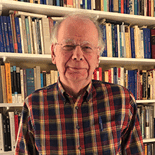
While still in graduate school in the mid-1970s, I began teaching “medical ethics” part time at an area community college. Because bioethics was then an emerging field, there was not much available in the way of course material. Around that time, The Hastings Center for Bioethics and its founders, Daniel Callahan and Willard Gaylin, were featured on a television documentary I watched. From that point forward, The Hastings Center for Bioethics and the Hastings Center Report became very valuable to my students and to me. Toward the end of my career, I was invited to the Center as a visiting scholar and was able to discuss with Daniel Callahan the impact of Hastings on my teaching and scholarship.
But that’s not my only connection with The Hastings Center for Bioethics and its mission. My father, who worked in the insurance industry for forty-five years, finished his undergraduate studies in The College at the University of Chicago on the GI Bill in the late 1940s. He was always an avid reader, but his reading list changed while I was in college and graduate school pursuing studies in philosophy. His library grew to include the history of Western philosophy, primarily the ancient Greeks as well as political philosophy. When I started teaching courses in medical ethics, Dad broadened his reading to that area as well. He read many books in the field and subscribed to a number of journals in bioethics and the philosophy of medicine—including the Hastings Center Report. He’d frequently send me articles that he thought might help in my teaching or research.
After my father retired, we attended a Hastings Center “meet and greet” in Chicago in the late 1990s, where we talked with Hastings leaders including Thomas Murray and Strachan Donnelley. Dad sounded more like an academic than an insurance expert. Now retired myself, I remain intrigued and engaged with bioethics. The Hastings Center Report keeps me apprised of new developments, recent books, and special topics in bioethics…and not infrequently reminds me of my father’s commitment to lifelong learning.
Dad’s various connections to The Hastings Center for Bioethics led him to become a donor to the Center and, upon his death, I have continued to donate each year. More recently, I decided to prioritize support for Hastings in my estate planning—making me a proud charter member of The Hastings Center Beneficence Society. My father and I always saw The Hastings Center for Bioethics as a fiercely independent organization committed to ethical reflection and action in all life sciences, not only medicine. I hope my philanthropic support will help secure that mission for many years to come.
Why I Give… Robert Pearlman, MD, MPH
My introduction to The Hastings Center for Bioethics (THC) occurred about 40 years ago while participating in a National Endowment for the Humanities Summer Workshop on Informed Consent. Ruth Macklin, the principal course faculty, arranged a visit to THC where I talked with several ethics scholars, including Tom Murray, Art Caplan, and Nancy Dubler.
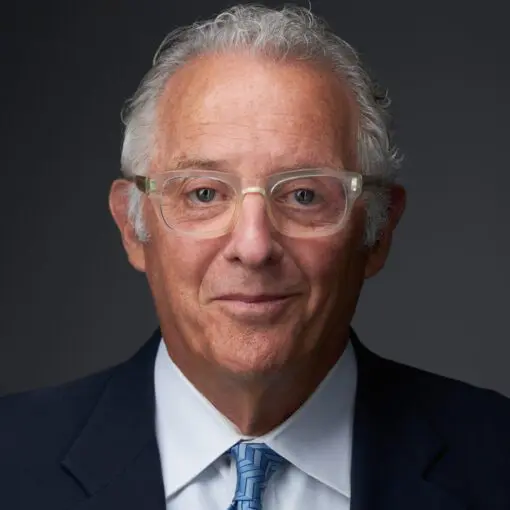
Several years later when I was a fellow in the Program in Ethics and the Professions at Harvard University, I learned more about their foci on social and ethical issues in health care science and technology. THC’s focus on health care and the human life span gave me an opportunity to obtain feedback and insights that informed my project on developing and evaluating an advance care planning workbook. I recall one recommendation in particular that was very useful; it was to interview a diverse group of religious leaders to obtain their feedback and recommendations.
More recently I had the privilege of serving on the Fellows’ Council and working closely with the Executive Director (Millie Solomon) and the Board. During this time, several THC colleagues and I developed a web-based bioethics timeline from the late 1940’s to the present for use as an educational tool for students and junior faculty.
My work with the Fellows’ Council and the bioethics timeline reinforced my desire to support THC, encourage others to do likewise, and recommend to junior scholars that they access the THC website to learn more about the overlap between their interests and past or ongoing scholarship of relevance, as well as opportunities to spend time at the Center. Over the years I have appreciated Hastings’ efforts to focus attention on social and ethical issues through their publications, conferences, interdisciplinary research, and mentorship of junior faculty. I also have valued the community of scholars with ties to THC and continue to this day to have collegial communications and friendships with many of them.
Intertwined as THC has been in my life’s work, I also believe that the challenges of yesterday and today will inevitably evolve into the challenges of the future. By arrangements I have made through my estate plans, THC will receive a bequest upon my death. And having simply shared the existence of my future gift intention with the Hastings team, I have unlocked a matching donation from their ongoing legacy challenge program, which can be put to good use immediately. If you share my respect for Hastings’ mission over the years, I invite you to speak with Ryan about gift planning opportunities that will help secure the impact you—and I— value so deeply.
Why I Give . . . Nancy Press, PhD, CEO, Child Aid:
Why DID I choose to support The Hastings Center for Bioethics?
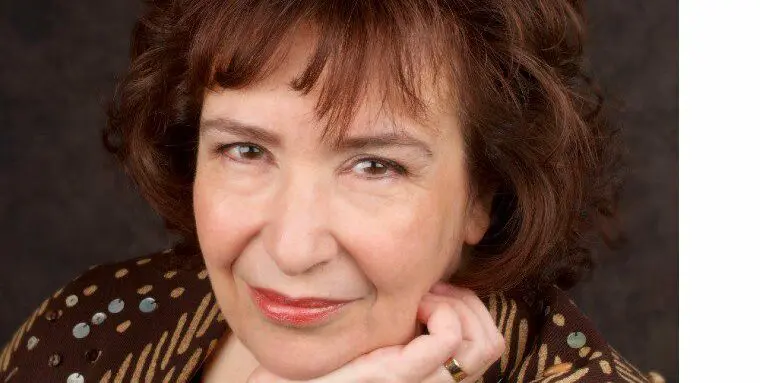
For some reason I don’t remember, I brought along a copy of Once a Catholic on my wedding trip in France. Since I had just finished my doctorate and was deep in my job search, it seems an odd choice now. Perhaps I was trying to better understand my Catholic ex-seminarian husband in the best way an anthropologist like me could think of to do it. But what I remember most clearly was the chapter by Dan and Sidney Callahan. Something about the tone of conversation and inquiry was so captivating, so much what a semi-disillusioned recent PhD had hoped intellectual discourse would be like, that I decided an incredible career goal—far out of reach—would be to someday be at The Hastings Center for Bioethics.
When some years later, now involved in work adjacent to medical ethics, I was actually invited to be part of a Hastings Center project, the I-need-to-pinch-myself-to-make-sure-this-is-real sensation was intoxicating. But what is perhaps more remarkable is that after four more Hastings Center projects, I have maintained much the same feeling.
Several years ago, I decided to leave academia to become CEO of the non-profit I had co-founded earlier. I felt that I had wrapped up the research and teaching part of my life and was ready for quite a different kind of challenge. But, of course, I continue to ruminate on my academic career—what was worthwhile; what was not; what do I wish I could have done more of. And the clear answer, every time I drift into that conversation with myself, is that the work of which I am most proud, and which I sometimes miss with sharp longing, is my collaboration with The Hastings Center for Bioethics. To sit around a long table, in what, to me, always felt like slightly hallowed space, and to have the freedom to entertain not the next grant; not the next paper; but the important questions that nag at one’s mind and heart with a group of stellar intellects of varying views and disciplines and passions…that is an academic life that exists in few other places. And to follow up those free and open conversations with timely published and publicized work…well, that is academic effectiveness that I have personally seen nowhere else.
The Hastings Center for Bioethics is a special place. The work that is done needs to continue to be done and continue to be broadly known. What an enormous privilege and pleasure to help ensure that continuance by closing the loop that began in a hotel room in France several decades ago.
Why I Give . . . Ben Wilfond, MD
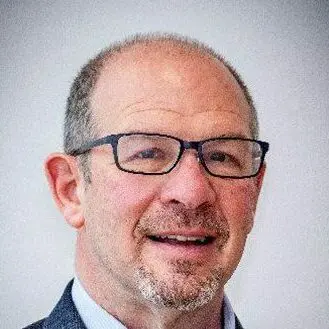
As a college student, I spent an evening shadowing a medical student during hospital call, and so began a lifelong interest, not only in practicing medicine myself, but in understanding the bioethics so integral to the profession.
While attending Rutgers University-New Jersey Medical School, I noticed that the American Medical Student Association (AMSA) did not have a Bioethics Committee, so I started one. I decided to work with another medical student who was pursuing an MFA in film to make a VHS video focused on four ethical situations encountered by medical students and how to respond to them. Part of the project included an internship at The Hastings Center for Bioethics, during which I wrote the script while interacting with other rising bioethicists, including Ronald Bayer, Jonathan Moreno, and Susan Wolf. You can see the video here: Between A Rock and A Hard Place: Values, ethics, and the physician-in-training.
I have since founded or served as the first director of a wide variety of programs, committees, and initiatives, applying to each situation my self-described credo of “responding to opportunities with curiosity and imagination.”
Since I first stumbled upon the Hastings Center Report while perusing the journals stacks at Muhlenberg College in the late 1970s—and subscribing for $17 a year—I have interacted with, served, or supported The Hastings Center for Bioethics and its important work to this day. Now a Hastings Center Fellow, I also serve on the editorial board for both the Hastings Center Report and Ethics & Human Research.
In addition to my past and present involvement and support, I have looked to the future and taken the practical steps necessary today to ensure that The Hastings Center for Bioethics will receive a substantial distribution from my qualified retirement plan when I pass away.
By designating The Hastings Center for Bioethics as a direct charitable beneficiary of a retirement account, I have helped to ensure a stronger financial future for the Hastings Center for Bioethics and its mission. By sharing notification of that plan, I also unlocked a significant current gift to the Annual Fund thanks to the generous and ongoing Wilson Trust challenge.
Please contact the Center’s Advancement leader, Ryan Sauder, to discuss how your thoughtful gift planning could have benefits for you and your heirs, as well as an immediate and lasting impact on The Hastings Center for Bioethics mission.
Visit our Beneficence Society page to join.
Visit our giving page to donate to The Hastings Center for Bioethics.
